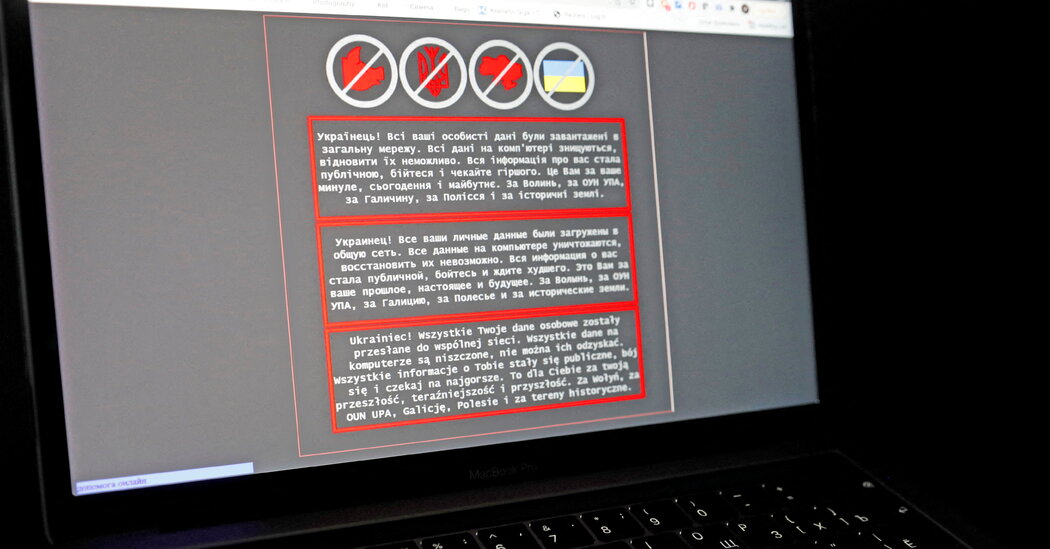FORT MEADE, Md. — The Pentagon’s Cyber National Mission force has been supporting Ukraine’s digital defense with daily consultations, a collaboration that has helped unearth thousands of warning indicators of potentially compromised Ukrainian computer networks, a top U.S. cybercommander said on Monday.
The United States had a team of nearly 40 people from the force in Ukraine to help the country shore up its defenses before all U.S. troops were withdrawn from the country ahead of the Russian invasion.
But Maj. Gen. John Hartman, the force’s commander, said on Monday that the United States had continued to conduct operations from inside the United States to assist Ukraine and stop Russian hackers.
The Cyber National Mission Force was created in 2012, as part of the U.S. Cyber Command — the nation’s cybermilitary organization, headquartered in the National Security Agency’s complex in Fort Meade, Md. There are 2,000 service members assigned to the force, organized into 39 teams charged with shoring up allied defenses, stopping Russian hackers, defending American elections and other operations.
On Monday, the U.S. military elevated the force to the status of a sub-unified command, a symbolic move that could eventually help it recruit more expertise within the military and keep its members in place longer. The idea is to make the mission force the cyberspace equivalent of Joint Special Operations Command, or JSOC, which oversees America’s elite hunter-killer commando teams.
“We really want to build the JSOC of Cyber Command in order to tackle the nation’s most difficult missions,” General Hartman said.
The war in Ukraine has become the world’s first sustained cyberspace battle between two sophisticated militaries. Russia has struggled to penetrate Ukraine’s digital defenses or notch any sustained battlefield gains from its cyberweapons. While American officials had anticipated that Russia would seek to take down Ukraine’s electric grid with a combination of drone, missile and cyberattacks, only the physical attacks have done lasting damage.
For now, Russia appears to have been deterred from direct cyberattacks on the United States or NATO. While Russian hacktivists loosely controlled by Moscow may try to attack the United States, the Russian government has not made a “deliberate decision” to attack NATO, General Hartman said.
Nevertheless, the Cyber National Mission force has teams around Europe working on strengthening computer network defenses. So far the force has deployed 38 times to 21 different countries, conducting operations that helped shore up computer networks.


